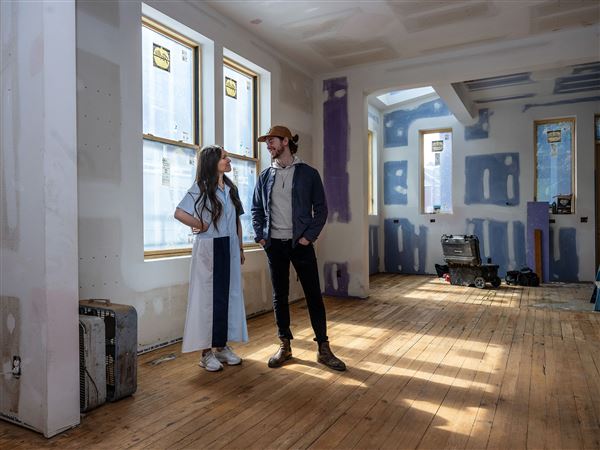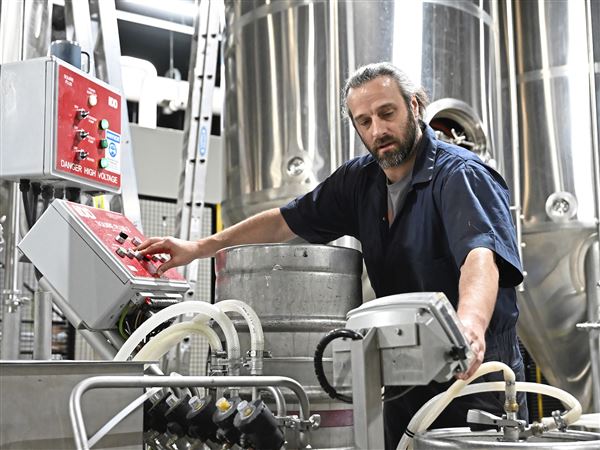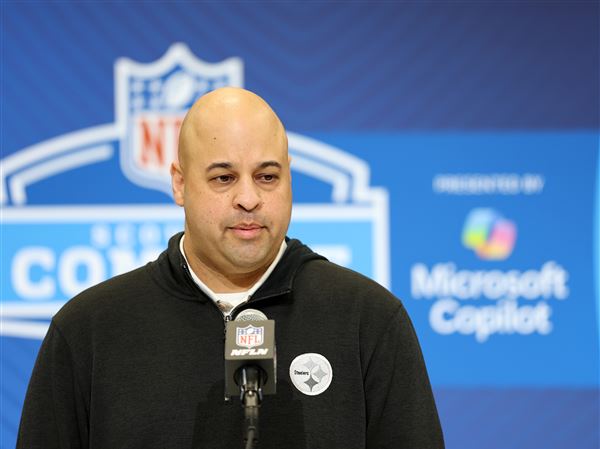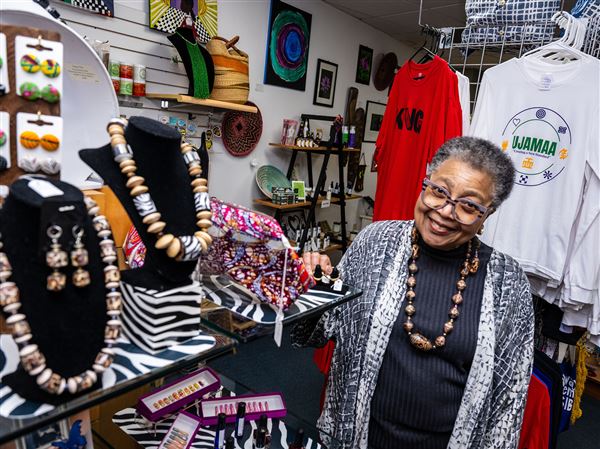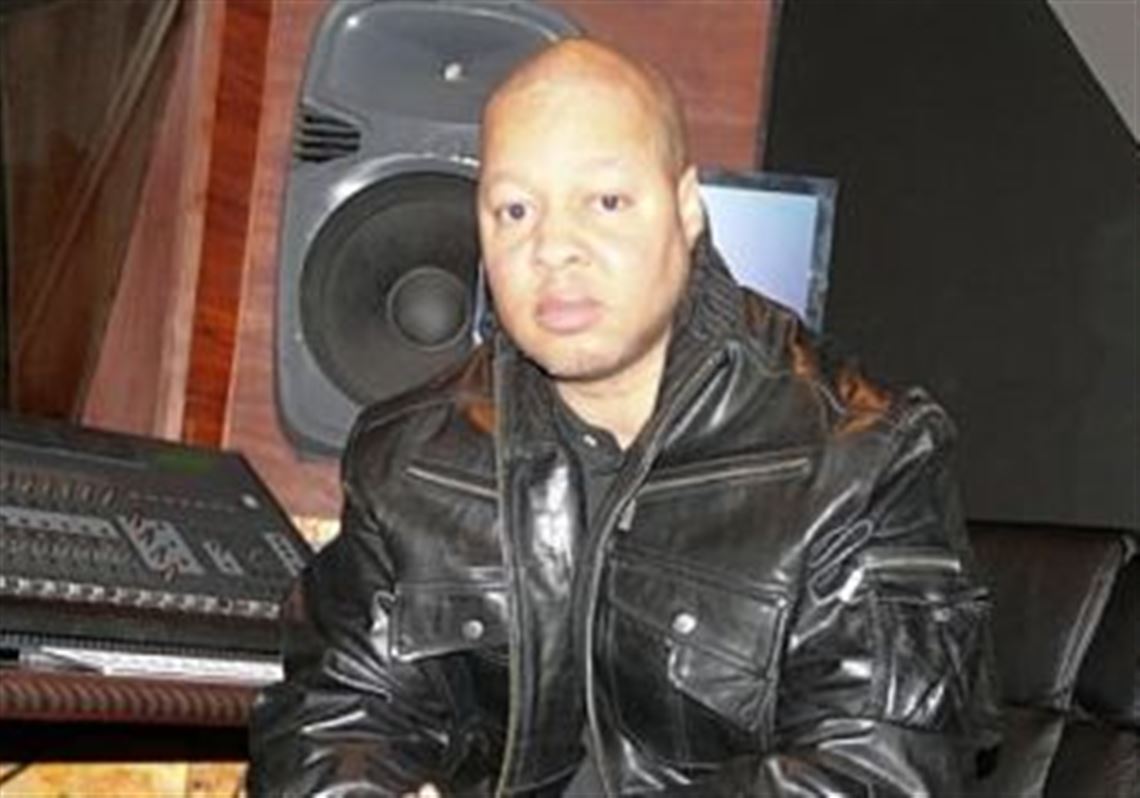Seventeen years ago, Sam Sneed demanded that audiences "better recognize" in the city's first national rap hit. Sadly, in the era dominated by fresh-faced hometown rapper Wiz Khalifa, the 40-something MC who gave us "U Better Recognize" has a legacy that may not resonate with the youth in the video age.
However, with the McKeesport native's debut album finally released last week, a rare conversation with the hit-maker for Dr. Dre, Jay-Z and Ice Cube reveals that history recognizes Sneed as a crucial Pittsburgh hip-hop pioneer.
"I was always driven by hip-hop. But at the time, I couldn't do much. It was pretty much a drain," says the man born Sam Anderson during a recent trip to New York City.
He is referring to the regional boundaries at a time when even rappers from Los Angeles were facing challenges breaking into an East Coast culture. Sneed was attending CCAC's Boyce campus in Monroeville, studying to be a radiologic technician. In his free time, he was producing sample-based street tapes for his group, Ruffer Than Most, and promoting rap concerts at his cousin's Vapors Lounge in McKeesport.
"The first show that I promoted was K-Solo," recalls Sneed about the EPMD protege, who had an Atlantic Records contract and two radio hits in 1991. "When I picked him up from the airport, I was playin' all my artists. He was like, 'Well, damn, who's doing the music?'" Sam was working with Stuart Bullard a/k/a Stu-B-Doo, who would also become a crucial element of Dr. Dre's sound.
K-Solo's interest led Sneed to extended sessions in New York, working for weeks on end in 1991 and 1992. The resulting product, Solo's "Times Up" album, placed Sam's musical compositions alongside the likes of household names like Pete Rock and Erick Sermon. Moreover, the bond the artist and producer formed led to Sneed going on tour with K-Solo. Although the two remained friends and would reunite at Death Row five years later, the green 22-year-old producer was not receiving publishing royalties for his work on the major label release.
After the tour Sneed returned to his home in Harrison Projects. "Things were movin' slow, so I had to come back to Pittsburgh. The streets were crazy at the time."
Despite being among Pittsburgh's first successful rap musicians, he maintained a low profile in 1992. While the producer built relationships with fellow hometown beat-makers Bud'dha, Mel-Man and Tuffy Tuff, he was determined to meet hip-hop's producer laureate: Compton, Calif.'s Dr. Dre. Dre had just released the biggest rap album to date in "The Chronic," and was actively building a West Coast version of Def Jam in Death Row Records.
In hopes of finding Dr. Dre, Sneed flew to LAX on a buddy-pass. Early in his journey, he had a chance meeting with a McDonald's employee who was a frequent babysitter for Dre and then-R&B-star-girlfriend Michel'le. Armed with a phone number to meet his hero and staying in an overpriced Malibu motel, Sneed began to pursue Dre. Their first phone encounter kept his hopes alive, "He would occasionally get back to me." Sneed's savings were draining fast on his temporary vacation when he crashed one of Dre's notorious pool parties and put a face with the name.
That led to an invitation to an actual studio session, and Sneed's years of preparation paid off. The Western Pennsylvania producer joined Dre's team of would-be stars, like Warren G and Daz Dillinger, and shared his knowledge of records and samples, which would appear on Snoop Doggy Dogg's classic debut, "Doggystyle." The 1993 multi-platinum release was a mosaic wall of sound, which Sneed says he helped Dr. Dre erect. From Isaac Hayes and Curtis Mayfield interpolations and samples to background vocals and re-appropriated Public Enemy drums, Sneed looks back on Snoop's masterpiece with prideful chuckles. By day, he and Dr. Dre would go record-shopping on Hollywood's Sunset Boulevard. By night, Sneed was in his swivel chair at the big boards in the smoke-filled recording rooms of Can-Am Studios, and Dre's home laboratory.
"I remember one time when we were working on 'Doggy Dogg World,' [Dr. Dre] said, 'I just love havin' this brother around.'"
Sneed was around a lot. Dre allowed him to live out of his luxury home in Calabasas, Calif. "There was this one particular room that had these really big closets. I used to sleep in the closets. I used to try to appear that I wasn't even around. Me tryin' to be smart, I was never in the way. So he really started taking a liking to me and enjoyed me being around."
After Sneed co-produced Dre's biggest hits of 1994 and 1995, "Natural Born Killaz" and "Keep Their Heads Ringin'," it was easy to like Sneed. Moreover, the hungry young producer was content paying hid dues to get his chance at stardom. He never received publishing credit on either hit. Instead, Dr. Dre and his label partner Marion "Suge" Knight rewarded Sneed with his first starring role and billing as a rapper, a Dre-assisted song called "U Better Recognize" on the No. 1 debuting "Murder Was the Case" soundtrack. In the song's lyrics, Sam said he was "hitting harder than Barry Bonds," and the video showed a grimacing Sneed donning a Pirates cap.
"I was representing," chuckles Sneed, who began to bring Stu and Bud'dha to LA to meet the day's rap stars. Two thousand miles from home, Sneed was quietly enjoying being Pittsburgh's first rap star, with a radio hit and a heavy hand in the biggest records of the mid-1990s.
Death Row had stars in Dre and Snoop and was successfully branding a new tier of artists, also including Tha Dogg Pound and Lady of Rage. As the label's win-streak led to hand-over-fist millions, its founders wanted to get a look at Sneed's hometown and see just what kind of place produced him. Dr. Dre made an initial trip early in the 1990s and toured McKeesport, including the Vapors Lounge that gave Sam his entry to the industry. A more grandiose second trip came in 1995.
"When I was working on my album, I had brought Dre back and Suge came [too]. We performed at Kong's in Monroeville."
A year later, and Death Row Records was a musical powerhouse and a brand synonymous with legitimized gangsters and gangsta rap. Recently signed Tupac Shakur had arguably taken Sneed and others' on-deck spot for the label and given the label massive success with a fresh double-album, "All Eyez On Me." Buried in the studio, Sneed plugged away on his debut "Street Scholars" at the request of both Dre and Knight. However, the bond Sneed had built with Dre would soon be at the root of his fallout with others.
Reportedly at odds with Tupac and questioning the merits of gangsta rap, Dre looked to create Aftermath Entertainment. The mentor told his pupil about this move and offered Sneed the opportunity to work with artists at the new label. At the guidance of his manager, Sneed obliged. Meanwhile, Dre left Death Row with a trio of Pittsburgh producers, all traceable to Sneed's trip West. Stu, Bud'dha and Mel-Man all joined the Doctor at his new imprint. Sneed remained a Row artist, there to release his debut, and continued to work with rap's most talented roster of emcees, all seeking production.
Several books chronicle a spring 1996 meeting at Death Row's Beverly Hills offices. To a large extent, it was the beginning of the powerhouse's end. Dre was gone, Tupac had six months left before his murder and the label's strong-arm tactics were about to emerge. It's clear that Sneed doesn't enjoy speaking about that day, and that he's been asked about it much more than any of his basslines or drum programming.
"It was basically me just getting played because I was by myself," and Knight and Shakur considered him a traitor.
"I thought it was a very cowardly thing to be doing," says Sneed, 15 years later. "But it was done ... It was out of pocket and distasteful."
Although he remained in California for several more months, Sneed never went to Death Row Records again, although the label continued to promote his album as an upcoming release. "I've never seen those people again, and that's a good thing," he declares.
Defeated by the hard truths of the industry, Sneed returned home. Although he still traveled to New York and Atlanta, he looks back on the years since Death Row without the glow of his glory years. From Florida's JT Money, to G-Unit's Tony Yayo, to even scoring a hit for Jay-Z in "Anything," Sneed continued to work. However, the Pittsburgh kid stopped rapping and refrained from interviews and public appearances. In fact, the lone headline Sneed scored since his major label departure was a 1999 brain tumor that called for public support.
Busta Rhymes, an artist Sneed never worked with, helped pay his hospital bills. Also contributing was Dre, whom Sneed had not spoken to or seen in nearly four years. "Dre helped out a lot," says Sneed, who survived the tumor and has since relocated to Atlanta.
That was a decade ago. Under the radar and disillusioned with the industry, Sneed got a surprise call last year when Toronto's WIDE Awake Entertainment, which purchased the Death Row assets out of foreclosure, opted to finally recognize Sneed's star power. "Street Scholars," a dusty collection of reels that had been untouched since that 1996 meeting was given back to him. After retooling 10 of the album's tracks and leaving another four in a virgin state, "Street Scholars" was released last week. Even the album's cover art alludes to a condemned Death Row prison. This audio relic means a lot to its maker, "I'm trying to give the people a full-balanced meal." From cautionary metaphoric drug tales ("Lady Heroin") to social commentary ("New World Order"), Sneed prepared it with care. The album also features a Monroeville hopeful named Ramaj and lyrical nods to local mainstays DJ Huggy and Wiz Khalifa. Sneed says that he's proud for his city and praises "Black and Yellow" as a hometown anthem.
Still, Sneed, who briefly rekindled a botched working relationship with Dre in 2007, asserts his place in the city's music lineage. "Mostly everything I ever did was a gold or platinum record. That says a lot." He's looking to keep that trend alive, even if over a decade removed from his last entry. As for the fellow Dre students that he made a path for -- Mel-Man, Bud'dha and Stu -- he won't reveal the status of those relationships. What he does offer is, "I believe if we would've stuck together, we could have been so much more as a unit." While the prospects of that unit's reunion remain to be determined, Sneed wants his "Scholar"-ship to show today's rap stars his potential in the supporting cast.
"I don't have a Dr. Dre budget. What you'll hear on my album is cool, but I think if I had a budget like that, I think most of the people in this [music] game wouldn't be able to rock with me."
First Published: February 3, 2011, 10:00 a.m.
